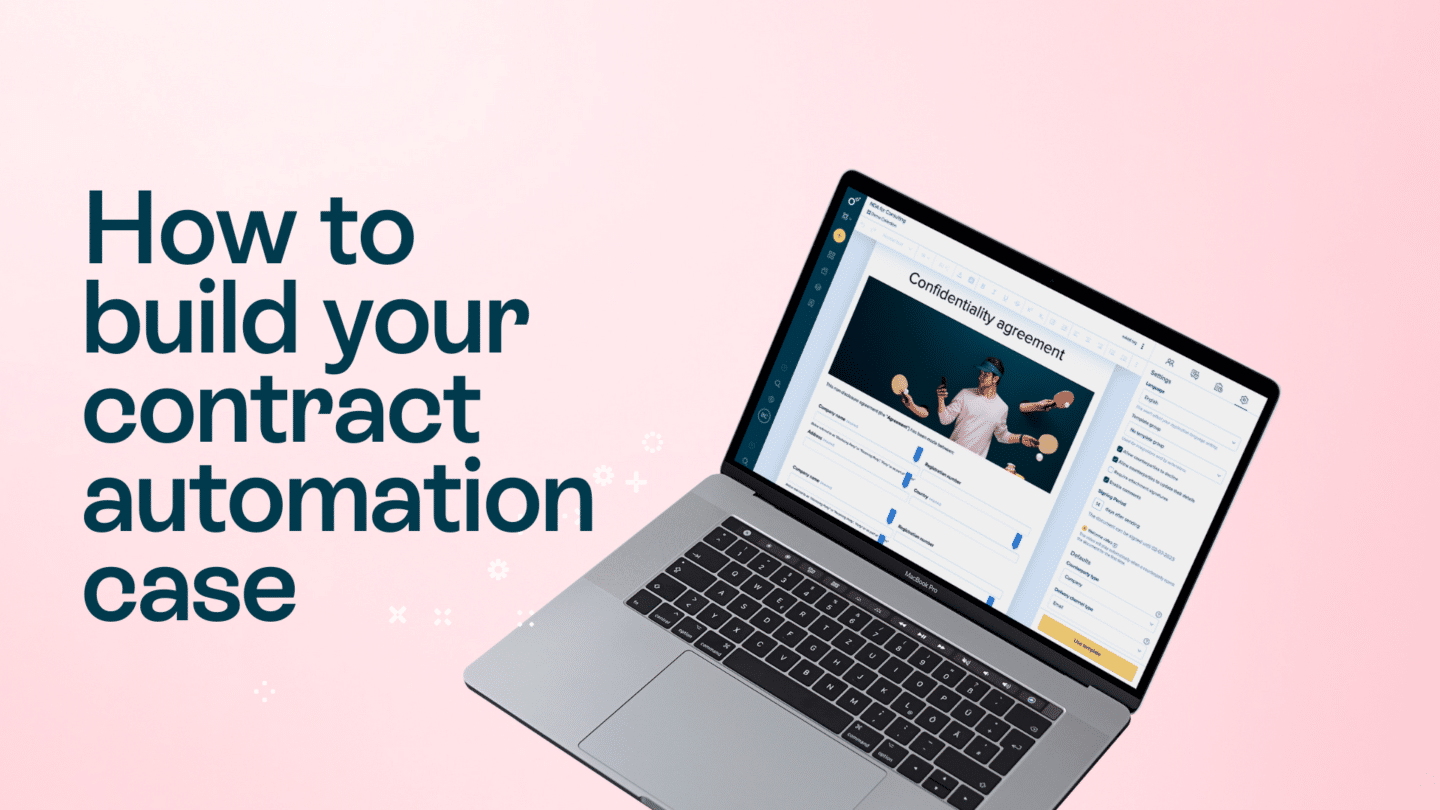Contracts are a critical component of any business transaction, covering everything from legal obligations to payment terms. Managing contracts can be a time-consuming and complex task, often requiring intense scrutiny and attention to detail. However, with advances in technology, specifically Artificial Intelligence (AI), contract reporting is being revolutionized, streamlining efficiency and accuracy like never before.
The basics of AI contract reporting
AI contract reporting is an innovative approach that utilizes AI technologies to automate and streamline the process of extracting crucial information from contracts. By leveraging natural language processing and machine learning algorithms, AI contract reporting is capable of analyzing large volumes of contracts and extracting relevant data in a fraction of the time it would take a human.
Imagine a scenario where a company has thousands of contracts stored in their database. Traditionally, contract managers would have to spend countless hours manually reviewing each contract, searching for specific information like dates, amounts, and clauses. This tedious and time-consuming process often led to errors and inefficiencies.
However, with the advent of AI contract reporting, this arduous task has become a thing of the past. AI algorithms are designed to understand the intricacies of legal language and can quickly identify and extract the necessary information from contracts. This not only saves valuable time but also ensures a higher level of accuracy.
Read also: Announcing Write with AI by Oneflow

Defining AI contract reporting
In simple terms, AI contract reporting refers to the use of AI tools and technologies to generate accurate and comprehensive reports based on the content of contracts. It involves the automatic extraction of key information, such as dates, amounts, and clauses, without the need for manual intervention.
Let’s delve deeper into how AI contract reporting works. When a contract is uploaded into the system, the AI algorithms analyze the text using natural language processing techniques. These algorithms break down the contract into its constituent parts, identifying sections, clauses, and key terms.
Next, the AI algorithms employ machine learning models to understand the context and meaning of the contract. This allows them to extract relevant information accurately. For example, if the contract contains a clause related to termination, the AI algorithm will recognize it and extract the specific details, such as the notice period and any associated penalties.
Furthermore, AI contract reporting systems can be customized to meet specific business requirements. They can be trained to recognize industry-specific terms, contractual obligations, and even identify potential risks or compliance issues.
The role of AI in contract reporting
AI plays a crucial role in contract reporting by automating tasks that were previously done manually. Traditionally, lawyers and contract managers would have to meticulously review each contract, identifying and extracting relevant data manually. This process was not only time-consuming but also prone to errors. With AI, the entire process is streamlined, saving valuable time and improving accuracy.
Moreover, AI contract reporting systems can handle large volumes of contracts simultaneously, allowing organizations to process and analyze contracts at scale. This scalability is particularly beneficial for businesses dealing with a high number of contracts, such as those in the real estate, finance, or legal industries.
Additionally, AI contract reporting can provide valuable insights and analytics. By analyzing patterns and trends across multiple contracts, organizations can gain a deeper understanding of their contractual obligations, identify potential risks, and make informed decisions.
It is important to note that AI contract reporting does not replace human expertise. Instead, it complements it by automating repetitive tasks and freeing up valuable time for contract managers and legal professionals to focus on more strategic and complex matters.
Read also: What is contract management? Your ultimate guide

The intersection of AI and contract management
AI contract reporting is just one facet of the broader intersection between AI and contract management. AI technologies offer numerous benefits in improving contract management processes, including enhanced efficiency and reduced risk of errors.
How AI transforms contract management
AI transforms contract management by automating repetitive and time-consuming tasks, allowing professionals to focus on more strategic aspects of their work. With AI-powered contract management systems, contract analysis, review, and reporting become faster, more accurate, and less resource-intensive.
AI in contract lifecycle management
Contract lifecycle management (CLM) encompasses all stages of a contract, from creation to execution and expiration. AI can greatly optimize CLM by automating contract creation, facilitating contract negotiation, and ensuring compliance throughout the contract’s lifespan. This not only streamlines the entire process but also minimizes risks and improves efficiency.
Benefits of AI contract reporting
The adoption of AI contract reporting brings forth a myriad of benefits for businesses of all sizes. From increased efficiency to improved accuracy, AI is transforming the way organizations manage their contracts.
Enhancing efficiency with AI
By automating contract reporting, AI significantly reduces the time spent on analyzing and extracting data from contracts. What could previously take days or even weeks can now be accomplished in a matter of hours. This enhanced efficiency allows contract managers to focus on higher-value tasks and ultimately drive business growth.
Improving accuracy in contract reporting
Humans are prone to errors, especially when dealing with the complexity and volume of contract data. AI contract reporting, on the other hand, is designed to be highly accurate and consistent. By eliminating human error, organizations can have confidence in the accuracy of their contract reports, reducing the risks associated with non-compliance and costly mistakes.
Read also: The role of AI in contract negotiation: Revolutionizing the process

Challenges in implementing AI contract reporting
While AI contract reporting offers immense benefits, there are several challenges organizations must overcome to implement it successfully. These challenges include data privacy concerns and implementation costs.
Overcoming data privacy concerns
As contract reporting involves processing sensitive and confidential information, data privacy is an essential consideration. Organizations must ensure that AI contract reporting systems comply with data protection regulations, safeguarding the privacy and security of the contracts being analyzed. By implementing appropriate security measures and adhering to best practices, organizations can mitigate data privacy concerns.
Addressing implementation costs
Implementing AI contract reporting systems may require substantial upfront investment, including the acquisition of AI software and the training of personnel. However, it’s crucial to consider the long-term benefits and cost savings that AI can bring. Organizations must weigh the initial costs against the potential gains in efficiency, accuracy, and overall competitiveness.
The future of AI in contract reporting
The adoption of AI in contract reporting is a game-changer, and its future implications are worth exploring. As technology continues to advance, new trends and possibilities are emerging in the realm of AI contract reporting.
Predicted trends in AI contract reporting
Experts predict that AI contract reporting will continue to evolve, incorporating advanced machine learning algorithms and natural language processing capabilities. This will enable even greater accuracy, faster processing speeds, and improved insights from contract data. Additionally, the integration of AI technologies with other contract management platforms and systems will unlock further efficiencies and collaboration opportunities.
The long-term impact of AI on contract management
Looking ahead, the long-term impact of AI on contract management promises to be transformative. Beyond contract reporting, AI is expected to revolutionize the entire contract lifecycle, from creation to enforcement. By automating repetitive tasks and leveraging powerful data analysis capabilities, AI will enable organizations to optimize contract management processes, minimize risks, and make more informed business decisions.
The key takeaways
AI contract reporting is a powerful tool that streamlines efficiency and accuracy in contract management. By leveraging AI technologies, organizations can automate the extraction of crucial information from contracts, enhance efficiency, and improve accuracy. While challenges exist, such as data privacy concerns and implementation costs, the benefits far outweigh any obstacles. As AI continues to advance, the future looks promising, with even greater possibilities and transformative impacts on contract management as a whole.








